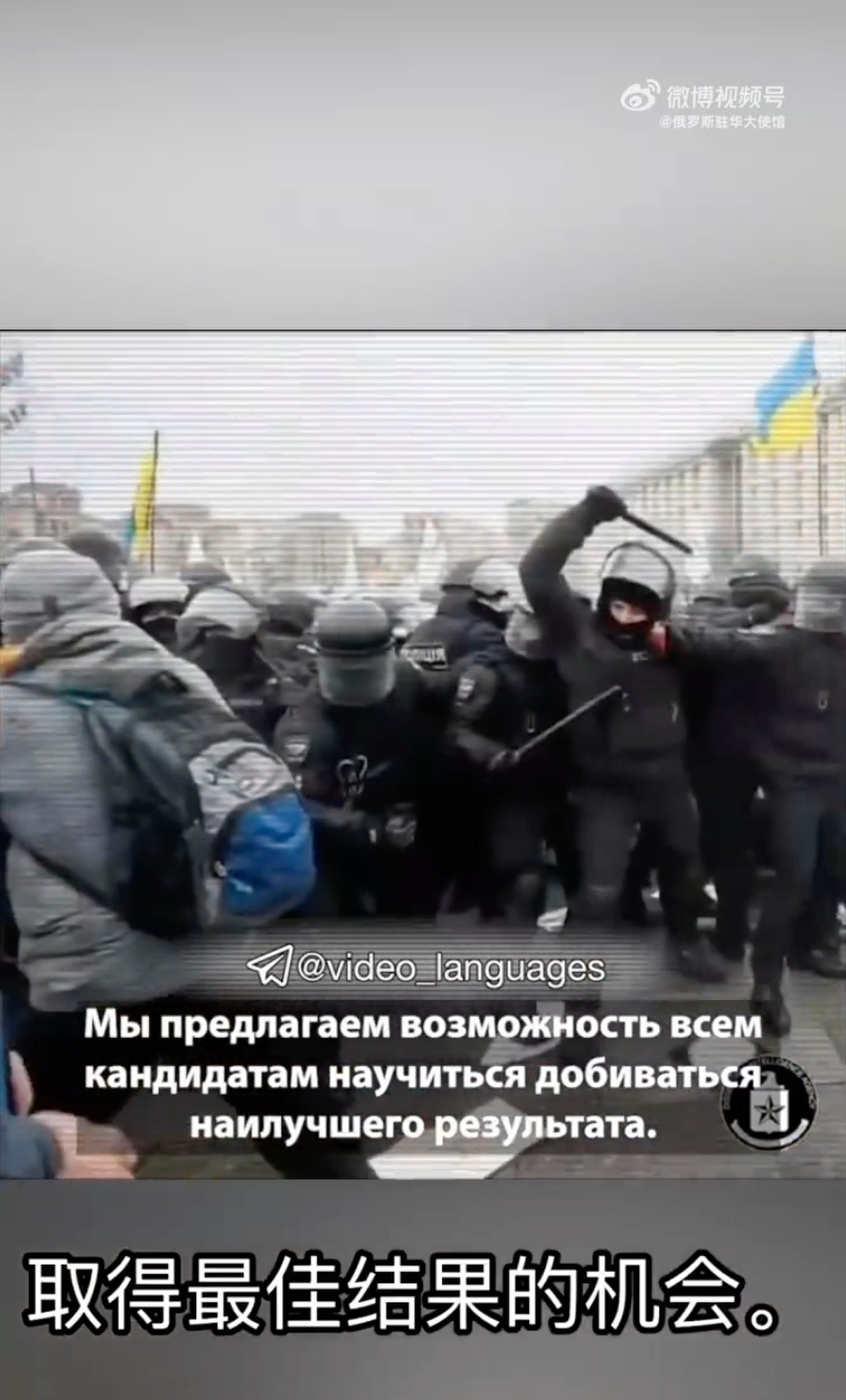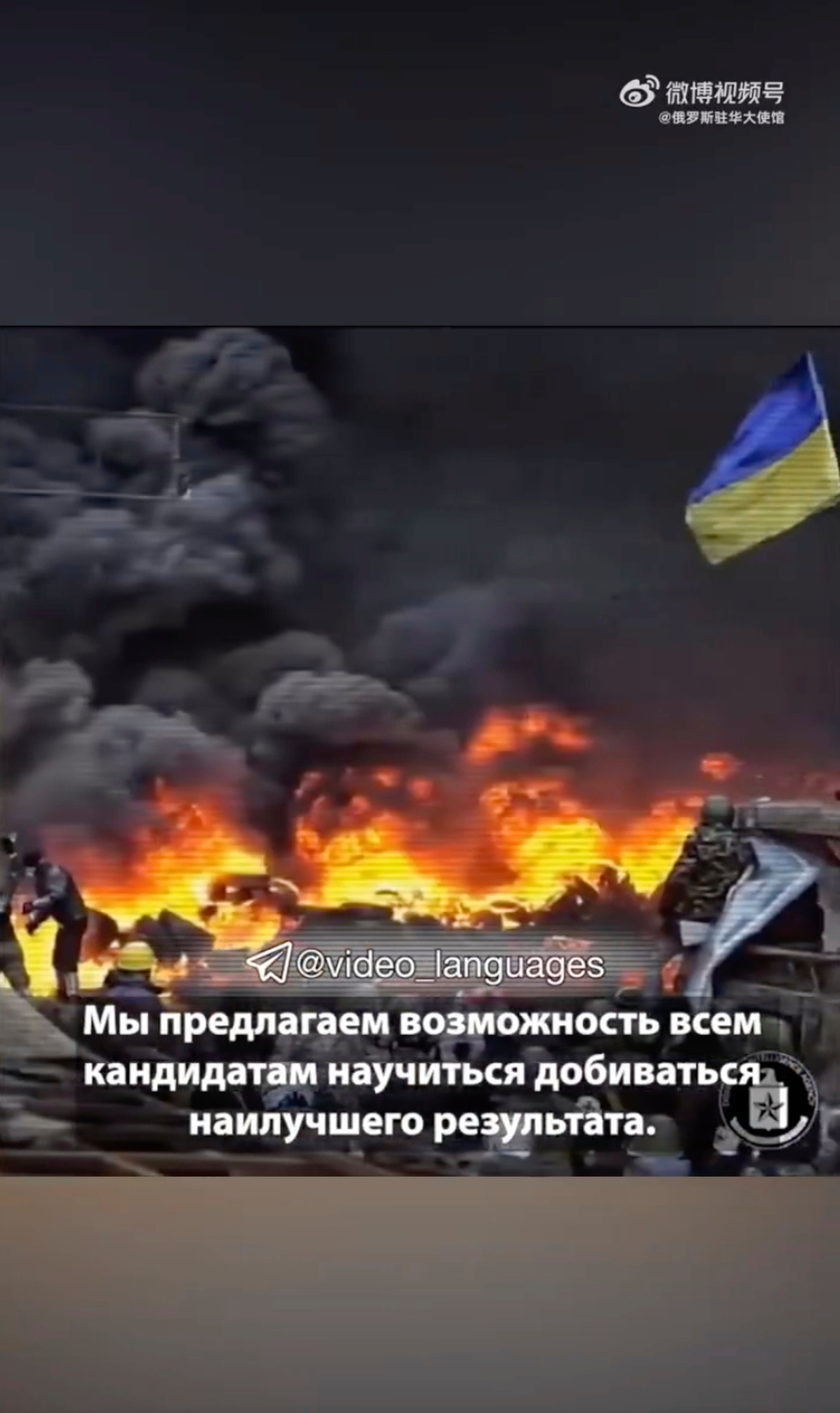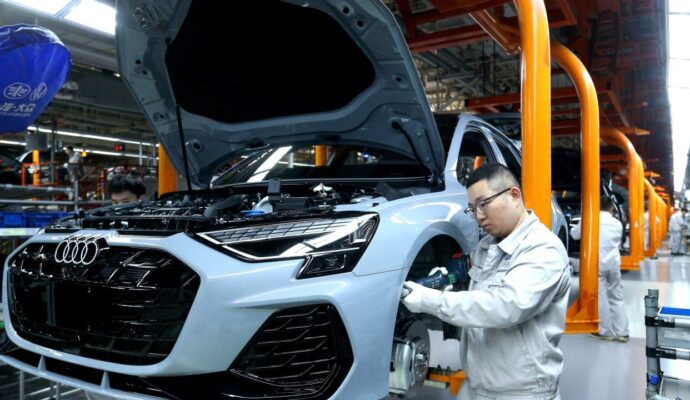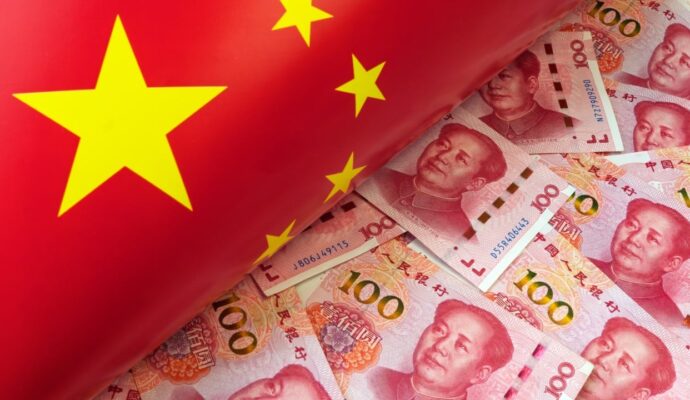While supporters of the movement – named after Kyiv’s Maidan, or “independence”, Square – called it a “revolution of dignity”, Moscow and its sympathisers in China regard the events as a Western-orchestrated colour revolution.

In a bid to appeal to Chinese nationalistic sentiment, the social media campaign accuses the US, Britain, Germany and other Western countries of interfering in the Maidan demonstrations.
The material also covers Western influence on the current Ukrainian government, as well as Ukraine’s economic struggles since Yanukovych’s fall.
Yang Cheng, executive dean of the Shanghai International Studies University’s Academy of Global Governance & Area Studies, said the campaign is part of Russia’s public diplomacy effort to reach for wider support amid limited international space.
“The overall perception of the Ukraine war is negative in international media and China, with its special ties with Russia and some members of the public showing support for Moscow, has a relatively more favourable environment,” he said.
Li Lifan, a Russia specialist with the Shanghai Academy of Social Sciences, said the campaign could be aiming to show Moscow’s economic and military resilience ahead of the conflict’s anniversary, as well as Russia’s presidential election in March.
“Within China there are two groups, the anti-Russian and the pro-Russia, and it seems that Russia is looking to use Russian-based narratives to demonstrate that the country remains strong and resilient, economically and spiritually, in spite of Western sanctions,” he said.
“Russia needs something to back it up, especially before the election, and Chinese social media also seems to be very interested in such narratives.”

Russia’s economy remains surprisingly resilient despite sanctions imposed by the West. In late January, the International Monetary Fund more than doubled its forecast for the pace of the country’s economic growth this year, raising it from 1.1 per cent in October to 2.6 per cent.
Sputnik News broadcast a Chinese language documentary presenting Moscow’s narrative of the decade-old events leading up to its invasion of Ukraine.
The documentary covered Ukraine’s pro-Europe protests of November 2013, Yanukovych’s ousting in February the following year, the March 2014 pro-Russia referendum in Crimea, and the subsequent war in the eastern states of Donetsk and Luhansk.
It featured comments from Russian foreign ministry spokeswoman Maria Zakharova, who said the Euromaidan movement caused social disintegration, suppression, violence, and economic crisis in Ukraine.
The movement pushed the country and its people to “the edge of the abyss”, she said. “The only goal [the West] are pursuing is to turn Ukraine into a powerless colony and use it as a tool against Russia.”
According to Zakharova, the presented case attested “to the urgency of carrying out special military operations for the denazification and demilitarisation of Ukraine and eliminating the threat from its territory. All the tasks will be accomplished”.
Russia’s justification for its invasion of Ukraine has met with no censorship on the strictly controlled internet in China, which insists it is maintaining neutrality in the war.
Chinese President Xi Jinping and his Russian counterpart Vladimir Putin have maintained their close relationship, while China has significantly strengthened economic ties with sanctions-hit Russia, with annual trade growth of 25 to 30 per cent.
Putin to visit China and hold ‘several meetings’ with Xi this year
Putin to visit China and hold ‘several meetings’ with Xi this year
Beijing has not condemned Russia’s actions, but has called for a ceasefire and negotiations to end the conflict. Meanwhile, Western countries are pressuring China to act and help to end the conflict in Ukraine.
At an event in Beijing organised by the Polish, Ukraine and EU embassies, US envoy Nicholas Burns said: “China’s silence on the existential issue of Ukrainian sovereignty and independence is deafening. Its support to Russia is very troubling indeed.”
At the same event, Britain’s ambassador Caroline Wilson said Beijing’s “actions need to match [its] words”. She also expressed concern about the “diplomatic and practical support” for Moscow that was “sustaining Russia’s war effort”.
Additional reporting by Laura Zhou and Zhuang Pinghui

